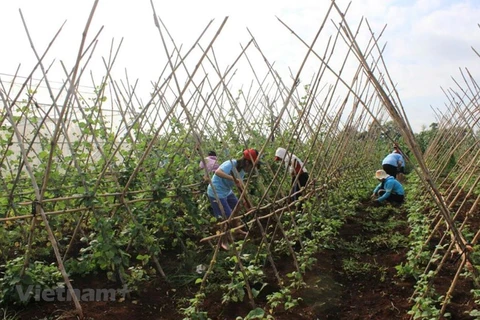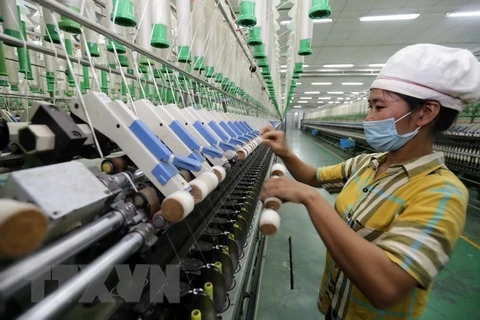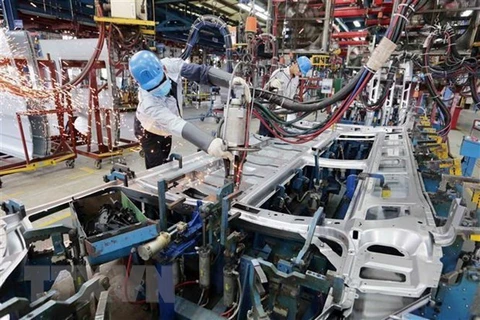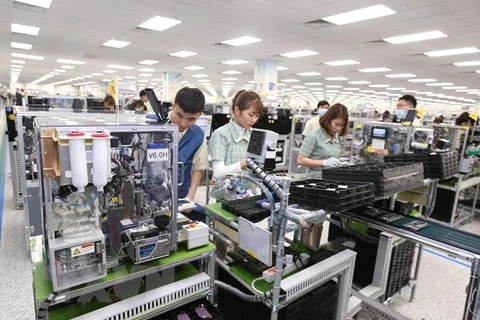Hanoi (VNA) – The consumer price index (CPI) climbed 3.85 percent year-on-year between January and September, the highest nine-month CPI growth over the last five years, the General Statistics Office reported.
At a press conference in Hanoi on September 29, GSO General Director Nguyen Thi Huong said the September CPI increased 0.12 percent from last month, 0.01 percent from December 2019, and 2.98 percent from a year earlier.
Six of the 11 groups main consumer goods and services saw month-on-month price hikes in September: beverages and cigarettes (up 0.05 percent); garments, headwear and footwear (0.1 percent), housing and construction materials (0.62 percent), medicine and healthcare services (0.01 percent); education (2.08 percent); and other goods and services (0.02 percent).
Five other groups recorded price declines: food and restaurant services (down 0.31 percent), household appliances and goods (0.06 percent), transport (0.12 percent), postal and telecom services (0.02 percent); and culture, entertainment and tourism (0.2 percent).
Huong attributed the CPI growth in September partly to the scheduled increase of educational services, higher household electricity prices due to stronger demand caused by hot weather, and more expensive domestic rice prices as a result of export rice prices reaching the highest level since 2011.
The third quarter’s CPI grew 3.18 percent from the same period last year.
In the nine months, the index rose 3.4 percent year on year in urban areas and 4.3 percent in rural areas, she noted, adding that the core inflation (CPI excluding grain food, fresh food, energy, and State-managed medical and educational services) went up 2.59 percent.
Contributors to the CPI hike between January and September include higher food, beverage, cigarette and apparel prices due to strong demand in the run up to the Lunar New Year holiday and insufficient pork supply, along with higher prices of some medical supplies and medicine as a result of the COVID-19 outbreak, the GSO chief said.
Meanwhile, lower fuel prices, weaker travel demand due to the COVID-19 impact, and power price cuts to assist pandemic-hit people and businesses helped curb the CPI uptrend.
The official noted that facing complex COVID-19 developments, under the Government’s directions, sectors and all-level authorities have actively implemented a number of synchronous solutions to contain the pandemic and stabilise the market.
The nine-month overall inflation grew at a faster pace than core inflation, showing price fluctuations were mainly driven by higher food and petrol prices. Additionally, the core inflation’s gradual decline from 3.25 percent in January to 1.97 percent in September reflected the monetary policy’s effectiveness over the period./.
VNA

























